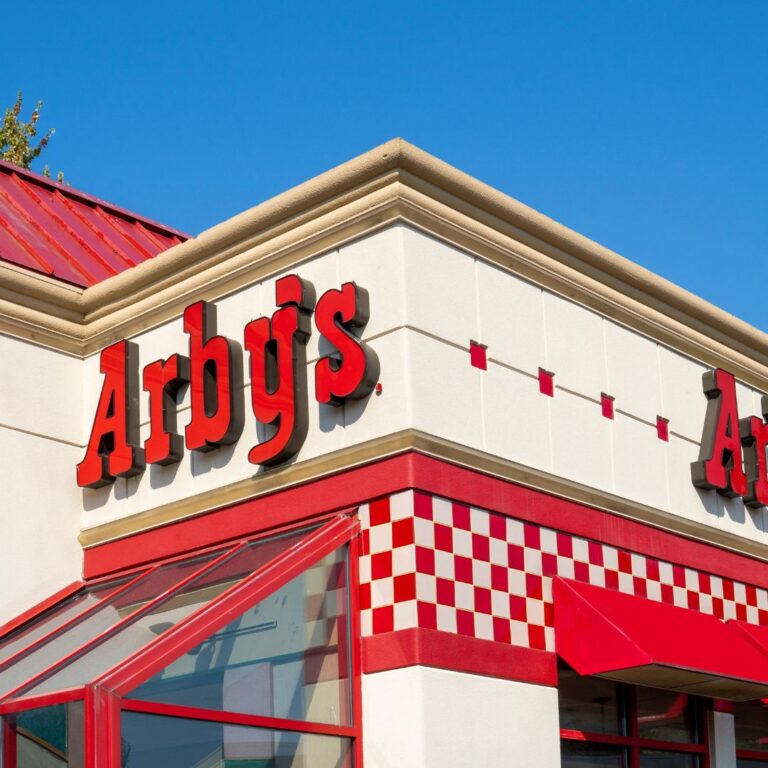Arby’s was founded in 1964 by brothers Leroy and Forrest Raffel in Boardman, Ohio. The name “Arby’s” is derived from the initials of their last name, “R.B.” for “Raffel Brothers.” The brothers aimed to create a fast-food restaurant that offered a menu distinctly different from the prevalent hamburger chains of the time. They sought to provide high-quality, roast beef sandwiches, which they believed would stand out in a market dominated by burgers.
The first Arby’s location opened on July 23, 1964, and was designed to provide a fast, casual dining experience. The restaurant featured a unique logo and a distinctive architectural design that included a red-and-white color scheme and a hat-like structure on its roof, which would become a hallmark of the brand.
Growth and Expansion
By the late 1960s, Arby’s began to expand rapidly. The company focused on franchising, allowing for quicker growth and increased brand visibility. By 1971, there were over 300 Arby’s locations across the United States. The chain introduced new menu items during this period, including the classic roast beef sandwich, which quickly became a favorite among customers.
In 1981, Arby’s was acquired by the United States Tobacco Company, which further accelerated its growth. The company continued to innovate, introducing products like the Jamocha Shake and the Beef ‘n Cheddar sandwich, which added to its appeal. The 1980s also marked the introduction of advertising campaigns that positioned Arby’s as a provider of premium fast-food options.
Challenges and Resilience
Despite its growth, Arby’s faced challenges in the late 1990s and early 2000s. Increased competition from other fast-food chains and shifts in consumer preferences led to declining sales. The company struggled to maintain its identity amidst these changes, leading to a need for a rebranding strategy.
In 2001, Arby’s was sold to Triarc Companies, which implemented significant changes, including a new menu focused on fresh ingredients and healthier options. This revitalization included the introduction of new sandwiches, salads, and side items, catering to the changing tastes of consumers.
The Turnaround: Innovation and Marketing
The mid-2000s saw a resurgence in Arby’s popularity, fueled by innovative marketing strategies and a renewed focus on quality. The chain embraced the concept of “We Have the Meats,” emphasizing its unique offerings beyond roast beef. This slogan became a cornerstone of the brand’s identity, appealing to meat lovers and differentiating Arby’s from competitors.
In addition to new menu items, Arby’s invested heavily in advertising. The use of humorous and engaging commercials helped create a strong brand presence, particularly among younger consumers. Collaborations with various celebrities and the introduction of limited-time offerings kept the menu fresh and exciting.
Modern Era: Menu Diversity and Sustainability
Today, Arby’s continues to evolve, focusing on menu diversity and sustainability. The brand has expanded its offerings to include chicken sandwiches, turkey products, and even plant-based options to cater to a broader audience. In recent years, the introduction of the “Meat Mountain” sandwich—a towering creation featuring multiple meats—highlighted Arby’s commitment to its meat-centric philosophy.
Sustainability has also become a priority for Arby’s, with efforts to source ingredients responsibly and reduce waste. The chain has made strides in its commitment to animal welfare and has begun offering more environmentally friendly packaging options.
Arby’s has come a long way since its humble beginnings in 1964. From a single restaurant serving roast beef sandwiches to a well-recognized fast-food brand with thousands of locations worldwide, Arby’s success is rooted in its ability to adapt and innovate while remaining true to its core values. The company’s dedication to quality, diverse menu offerings, and effective marketing strategies has solidified its place in the competitive fast-food landscape, ensuring that it remains a beloved choice for customers seeking something different. As it moves forward, Arby’s will likely continue to explore new flavors and ideas while honoring its rich history.

